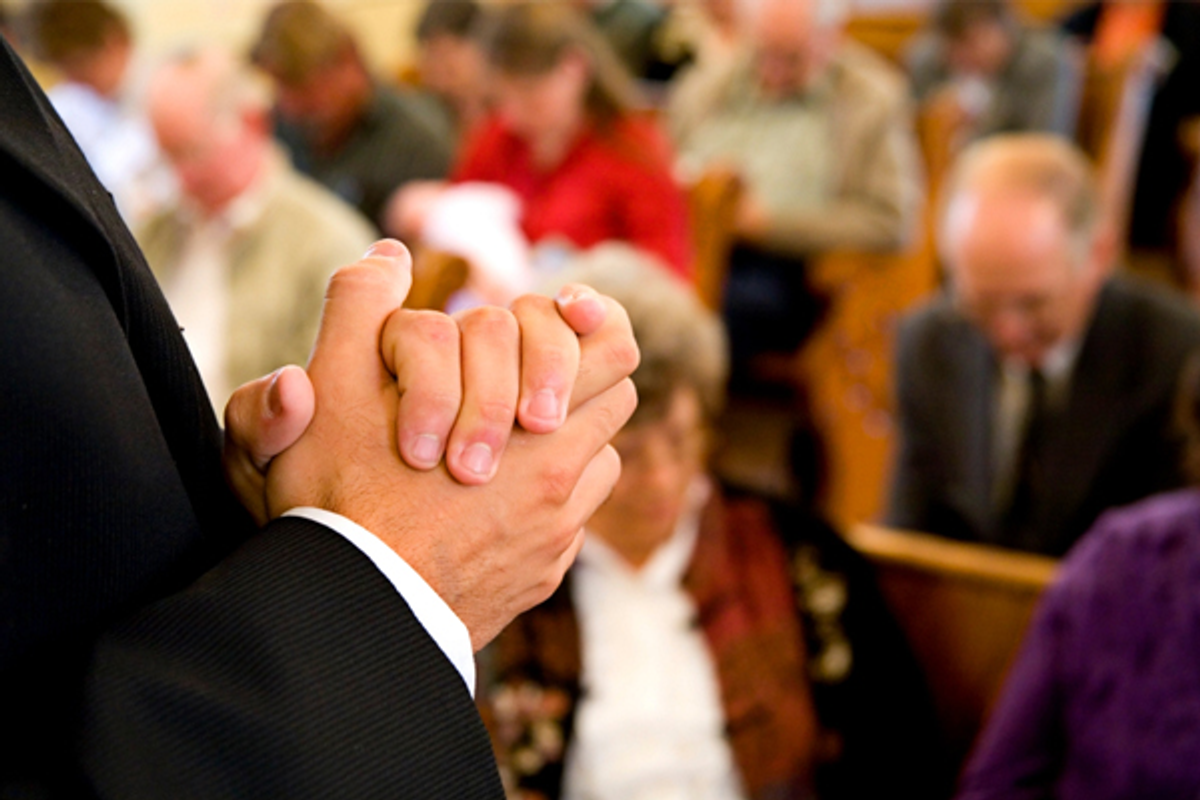If you have the stomach to listen to enough right-wing talk radio, or troll enough right-wing websites, you inevitably come upon fear-mongering about the Unassimilated Muslim. Essentially, this caricature suggests that Muslims in America are more loyal to their religion than to the United States, that such allegedly traitorous loyalties prove that Muslims refuse to assimilate into our nation and that Muslims are therefore a national security threat.
Earlier this year, a Gallup poll illustrated just how apocryphal this story really is. It found that Muslim Americans are one of the most -- if not the single most -- loyal religious group to the United States. Now, comes the flip side from the Pew Research Center's stunning findings about other religious groups in America (emphasis mine):
American Christians are more likely than their Western European counterparts to think of themselves first in terms of their religion rather than their nationality; 46 percent of Christians in the U.S. see themselves primarily as Christians and the same number consider themselves Americans first. In contrast, majorities of Christians in France (90 percent), Germany (70 percent), Britain (63 percent) and Spain (53 percent) identify primarily with their nationality rather than their religion. Among Christians in the U.S., white evangelicals are especially inclined to identify first with their faith; 70 percent in this group see themselves first as Christians rather than as Americans, while 22 percent say they are primarily American.
If, as Islamophobes argue, refusing to assimilate is defined as expressing loyalty to a religion before loyalty to country, then this data suggests it is evangelical Christians who are very resistant to assimilation. And yet, few would cite these findings to argue that Christians pose a serious threat to America's national security. Why the double standard?
Because Christianity is seen as the dominant culture in America -- indeed, Christianity and America are often portrayed as being nearly synonymous, meaning expressing loyalty to the former is seen as the equivalent to expressing loyalty to the latter. In this view, there is no such thing as separation between the Christian church and the American state -- and every other culture and religion is expected to assimilate to Christianity. To do otherwise is to be accused of waging a "War on Christmas" -- or worse, to be accused of being disloyal to America and therefore a national security threat.
Of course, a genuinely pluralistic America is one where -- regardless of the religion in question -- we see no conflict between loyalties to a religion and loyalties to country. In this ideal America, those who identify as Muslims first are no more or less "un-American" than Christians who do the same (personally, this is the way I see things).
But if our politics and culture are going to continue to make extrapolative judgments about citizens' patriotic loyalties based on their religious affiliations, then such judgments should at least be universal -- and not so obviously selective or brazenly xenophobic.

Shares